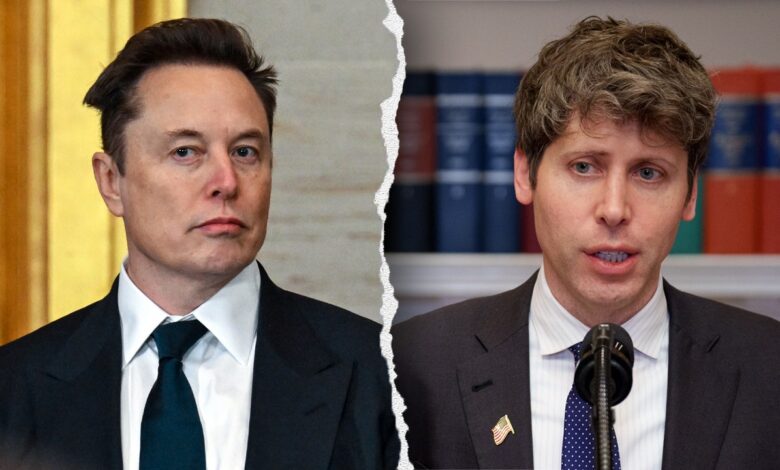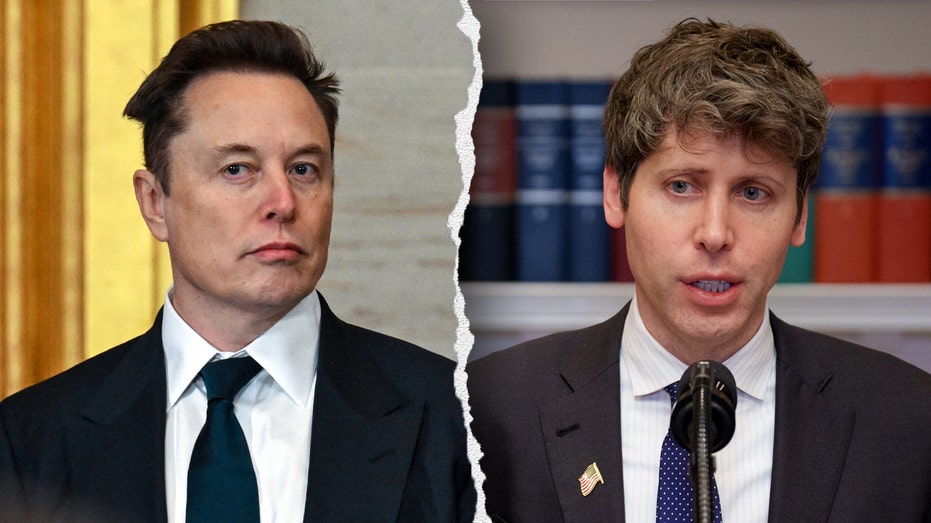Musk-led group of investors submit unsolicited bid of $97.4B to take over OpenAI

OpenAI CFO Sarah Friar explains how AI is taking center stage at Davos, what the Stargate project means for the macroeconomy and details new products for key customers.
A group of investors led by billionaire Elon Musk has offered $97.4 billion to take control of OpenAI, fueling his feud with Sam Altman over ChatGPT, which is behind the artificial intelligence (AI) company, according to reports.
The Wall Street Journal reported that Marc Toberoff, Musk’s attorney, said he submitted a bid on Monday to the board of directors at OpenAI.
While the offer was unsolicited, it could interfere with Altman’s plans for the future of OpenAI, which included turning it into a profitable company. He also reportedly planned to spend up to $500 billion on infrastructure to support AI through Stargate, a joint venture Altman is part of.
Both Musk and Altman are battling it out in court over the future direction of OpenAI.
ELON MUSK AND TECH LEADER SAM ALTMAN GET INTO WAR OF WORDS OVER AI INFRASTRUCTURE PROJECT

Elon Musk and OpenAI CEO Sam Altman. Musk previously helped launch OpenAI, which Altman is now the CEO of, but no longer has any connection to the company. (Getty Images / Getty Images)
Altman responded to Musk’s offer on X, saying, “no thank you but we may buy twitter for $9.74 billion if you want.”
Musk turned to X and fired back quickly, “Swindler,” and later wrote, “Never a dull moment on X.”
Musk was a co-founder of OpenAI but cut ties with the company in 2018 after he was unable to persuade its other leaders to put him in charge of a for-profit OpenAI entity or merge the company with Tesla. Weiss noted that Musk has likened Altman to the “Little Finger” character who was an antagonist in the “Game of Thrones” series and that the xAI founder said he doesn’t trust Altman to lead a company that controls the world’s most powerful AI.
OPENAI CEO ‘NOT THAT WORRIED’ ABOUT ELON MUSK’S RELATIONSHIP WITH TRUMP, POTENTIAL FOR ‘UN-AMERICAN’ LAWFARE
Both Musk and Altman started OpenAI as a charity in 2015. When Musk left, Altman became the chief executive and the company established a for-profit subsidiary to raise money from investors and Microsoft. Now, Altman is looking to turn the subsidiary into a traditional company, the WSJ reported.
Last month, President Trump announced a massive $500 billion infrastructure project called Stargate. Major names including Softbank, OpenAI and Oracle plan to join forces to build data centers in the U.S. for the further development of AI.
Following the announcement of Stargate, Musk cast doubt on the project’s ability to follow through with its promises, arguing the cohort of companies did not actually have the money to complete the project. Stargate will see the trio of companies join forces to build data centers in the U.S. for the further development of AI, which holds the promise of increasing productivity by automating work.
ELON MUSK SUES OPENAI, SAM ALTMAN AGAIN

Sam Altman, chief executive officer of OpenAI, speaks at the Microsoft Build event in Seattle, May 21, 2024. (Chona Kasinger/Bloomberg via Getty Images / Getty Images)
The initial investment is expected to be $100 billion and could reach five times that sum. Microsoft, NVIDIA, investor MGX and the chipmaker Arm are also partners in the project.
Musk took to X shortly after the announcement to express doubts about OpenAI’s ability to financially back Stargate.
“They don’t actually have the money,” Musk posted on X in response to an OpenAI post touting Stargate. “SoftBank has well under $10B secured. I have that on good authority.”
GET FOX BUSINESS ON THE GO BY CLICKING HERE
Altman and Musk have since traded jabs on social media regarding the project and funding.
This is a developing story. Please check back for updates.
Fox Business’ Eric Revell and Kristen Altus contributed to this report.




